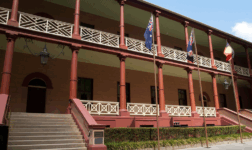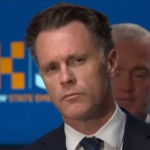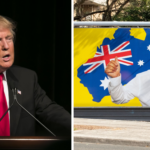Politicians Posture as Protectors of the Public, Primarily for Political Purposes

New South Wales premier Chris Minns has supported calls made by other politicians for a parliamentary inquiry to uncover potential victims of the man dubbed the “backpacker killer”, Ivan Milat, who passed away from stomach cancer in 1999 after being taken from Goulburn prison to Sydney’s Prince of Wales Hospital.
But while the proposal has broadly been supported by the mainstream media, it has also been criticised as little more than a way to score political points, given that Milat was the subject of a police taskforce in 1993 which, while identifying 56 potential victims and despite the fact he was alive at the time., was not the subject of such an inquiry.
The move has been further criticised as an attempt by politicians to interfere with the separation of powers – being the distinction between the executive, legislature and judiciary, including subsidiary principles such as the presumption of innocence and right to a fair trial.
Political point-scoring at the expense of democratic principles
In relation to the presumption of innocence – which is the principle that a person is presumed to be innocent unless and until prosecuted and proven guilty in a court of law – politicians systematically passed laws subverting the principle and, on several occasions, called for inquiries, and even gone so far as to misuse parliamentary privilege by accusing individuals of having committed crimes, before any finding of guilt in the courts.
Former New South Wales Chief Justice, Tom Bathurst, delivered a speech in 2021 during which he identified 52 provisions passed by the state legislature which subvert the presumption of innocence – from local government by-laws, to presumptions relating to bail applications, to prosecution disclosure requirements, to directions given to juries during criminal trials.
Politician and former broadcaster Derryn Hynch famously misused parliamentary privilege to accused unprosecuted persons of having committed child sexual offences, and several politicians jumped on the prosecutorial bandwagon of accusing an innocent washing machine repairman of being responsible for the murder of three-year old William Tyrrell.
The calls by a number of politicians, including Premier Minns, for a parliamentary inquiry 26 years after the death of Ivan Milat, and given an extensive investigation had taken place while the notorious serial killer was still alive, may be seen in the same realm – politicians attempting to score points
And it is important to bear in mind that unlike judicial inquiries – which are conducted under strict rules by independent judges – parliamentary inquiries are inherently political in so far as members of parliament are tasked with making findings, an exercise which often serves to bolster their political aspirations rather than impartially, methodically and thoroughly examine the evidence with a view to ascertaining the truth.
Separation of powers
The doctrine of the separation of powers is contained in the Commonwealth Constitution, in which Chapter I vests legislative power in parliament, Chapter II vests executive power in the Crown and its ministers, and Chapter III vests judicial power exclusively in the courts.
While this division applies directly at the federal level, the High Court has made clear that state courts—such as those in New South Wales—must also maintain institutional independence from political interference.
This was made explicit in the landmark Kable v Director of Public Prosecutions (NSW) (1996), where the High Court struck down a NSW law that allowed the Supreme Court to order the preventive detention of a single individual, Gregory Kable, on political grounds.
The Court held that such laws compromise the integrity of state courts because those courts are part of Australia’s “integrated judicial system” under Chapter III of the Constitution.
In other words, even though the separation of powers is not textually entrenched in NSW’s Constitution in the same way as federally, the Kable principle ensures that state parliaments cannot conscript their courts into performing political functions inconsistent with impartial adjudication.
Judicial independence
Alongside Kable, the earlier Boilermakers’ Case (1956) remains the foundation of judicial independence in Australia, establishing that judicial power cannot be fused with executive or legislative roles. Together, these cases underscore the dangers of political branches intruding into judicial functions—precisely the concern raised by calls for a parliamentary inquiry into Milat’s crimes.
Pros and cons of inquiry
Critics argue that reviving the Milat case through such an inquiry risks encroaching upon judicial independence.
Parliamentarians, by seeking to revisit matters already addressed by police and the courts, may be seen as usurping judicial authority and undermining the presumption of finality in criminal proceedings.
Families of victims may be promised closure, but instead find themselves dragged through a cycle of renewed speculation without the procedural safeguards of a judicial process.
But supporters of the inquiry, on the other hand, claim that it represents an opportunity to bring justice to potential victims who may never have been identified, and to scrutinise whether law enforcement at the time overlooked critical evidence. Yet even here the question arises: should politicians, rather than independent investigators or coronial processes, be the ones making that call?
Seeking justice
There is an argument that rather than hold what is essentially a political inquiry, taxpayer funds would be better spent by targeted measures such as the improved resourcing of specialist investigative units and independent commissions of inquiry, as well as the expansion of cold case and then strengthening of coronial powers.
Such moves would serve to promote justice for victims while limiting encroachments by politicians on the fundamental doctrine of the separation of powers and the principles that go a long with it.






